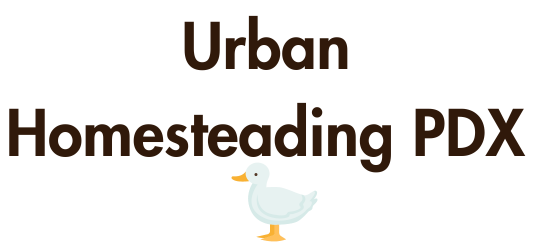Community Network
Connect with local, regional, and national community networks that share resources and ideas relevant to urban homesteading. These organizations and communities come in all kinds of shapes and sizes. With this in mind, think about where you might meet like-minded people and what skills and resources you want to learn and share with others.
-
Tool library
A tool library is a collective of individuals that will share and trade tools to complete jobs. In general, there are tools that you will use regularly and should purchase to always have on hand. However, some tools are specialized for specific purposes that you may not need all the time. By participating in a community tool library you get access to those specialized tools when you need them without the cost of ownership. By all means, use these resources to get the tools you need, but if you can also share with others that only improves the community tool library.
-
Fruit Grower Societies
How do you know what are the best fruit tree and shrub varieties for your area? By joining a local plant society or fruit growers club it is possible to learn what grows best in a local climate. Most gardeners and backyard orchardists enjoy sharing their knowledge freely. To put it another way, a local plant society, even an online version, is an excellent source to glean years of gardening experience in a relatively short period of time. Learn everything from the basics of planting a fruit tree to techniques for grafting your trees.
-
Community Gardens
Similar to fruit-growing societies, participating in a local community garden is perfect for meeting local gardeners. Aside from getting a plot of land to use for gardening, the people in the garden are a wonderful resource. Our community garden is a pure melting pot of our local neighborhood and we enjoy sharing and learning from others. Find new plants or varieties to grow by asking “what is that” when you see a beautiful plant.
-
Share / Trade Abundance Harvests
Share or trade your abundant harvests with friends, family, and people in your neighborhood. There are likely many outlets to share or trade vegetables in your location. We often share extra eggs and produce from the garden with our neighbors. They watch the house and feed the chickens and ducks when gone for a day or two and in return, they get random supplies of eggs. Neighborhood apps like Nextdoor are an excellent place to find other urban homesteaders or people in your neighborhood willing to trade surplus vegetables with. Many folks are looking for people that grow awesome vegetables and fruits that they can preserve in jams or other methods.
-
Donate Harvests to Food Banks
The community garden we are involved with has a relationship with a couple of community food banks that will take excess vegetables. This is a great way to extend your garden to reach people in need. Most community food banks or food kitchens providing meals to low-income individuals will accept certain kinds of produce. Call ahead before bringing, but you will likely be able to offload a few extra potatoes from a huge harvest or heads of lettuce that were all ready at one time and aren’t going to be eaten.
-
Environmental Organizations
Connect with local groups supporting environmental organizations. This is a nice way to meet people that may also be living their life in an intentionally self-sustaining manner.



Recent Comments